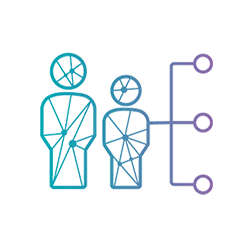
Are you looking for a way to improve your employees' skills? If so, functional skills training may be the answer.
This type of training will help employees learn essential skills needed for the workplace which in turn gives an added benefit to employers by improving productivity and reducing costs.
Learn more about how functional skills training can benefit both employees and employers in this blog post.
What are Functional Skills?
Functional Skills are the essential English, maths and Digital Skills that people need to equip them to function effectively for life and work purposes.
Functional skills courses are available in England from Entry 1 to Level 2, and are nationally recognised. These courses can help employees gain the practical skills they need to succeed in their chosen career.
Functional skills courses explore real-life applications of English or maths. These courses are recognised by employers and can help employees develop transferable skills that are needed in every workplace.
More than a quarter of adults aged 16-65 lack basic functional skills in English and maths. Many employees worry that admitting they need help in these areas will lead to them losing their job, not being promoted, or being seen as ineffective by colleagues and managers.
To avoid this, they may adopt coping strategies such as relying on colleagues, avoiding certain tasks, or taking longer than necessary to check and recheck emails, reports, or data.
Why are Functional Skills important?
Young people and adults need functional skills in order to progress at work, school or life. These can be delivered as a standalone qualification or part of an apprenticeship program. They will learn how to solve problems by applying their knowledge with real-life context examples that are relevant for them!
What are Functional Skills equivalent to?
Functional Skills qualifications are respected GCSE alternatives. For example, a Functional Skills level 2 course would be equivalent to a GCSE grade C/4.
Although, Functional Skills courses are not exactly the same as GCSEs. Functional Skills courses are based on learning these skills through everyday situations. Alternatively GCSEs are academic qualifications, which are better suited to prepare learners for further study.
Functional Skills Examples
There are three main areas of functional skills - English, Maths and Digital Skills.
English
Students learning English learn the fundamentals of using our language effectively in both work and personal settings. These skills help them apply spelling, punctuation and grammar rules correctly when communicating via written methods, which leads to improved effectiveness and confidence within their career.
Maths
Mathematics is a subject that covers three main areas: numbers, data handling and measuring. In order to prepare for the mathematics section of an exam students will have to learn about various mathematical concepts such as doing arithmetic without using any calculator.
The exam is designed to test skills in solving mathematical problems, making decisions with numbers and performing numerical reasoning tasks. It can be taken online they you have completed the learning material.
Digital Skills
The Digital Skills assessment tests ability to use computers and the internet for research, communication, and other functions. Students will need to have access to a computer with the internet in order to take the test.
How do Functional Skills help businesses grow?
Employers can benefit from functional skills training in a number of ways. These courses can help businesses:
- Operate with greater efficiency
- Increase productivity & competitiveness
- Improve employee problem-solving abilities
- Help employees better understand and comply with workplace policies and procedures
- Improve morale and staff retention rates
With the right support and resources, workers can achieve their goals and become valuable assets to the company. If you're looking for a way to improve your business' performance, consider implementing a functional skills training program.
By offering qualifications to employees who weren’t able to access them at school, your business will benefit in many aspects.
Related: What is the skills gap (and how can you fix it)?
How can you help improve an employee's Functional Skills?
Functional skills are an important part of business growth and development. By investing in employees and helping them to improve their functional skills, businesses can see improvement in many areas such as productivity, employee retention and engagement.
Here at Total People, we offer free functional skills courses in English, Maths and Digital Skills to help businesses invest in their employees and support their growth. Contact us today to find out more about our services or visit our website to enrol in a course.



